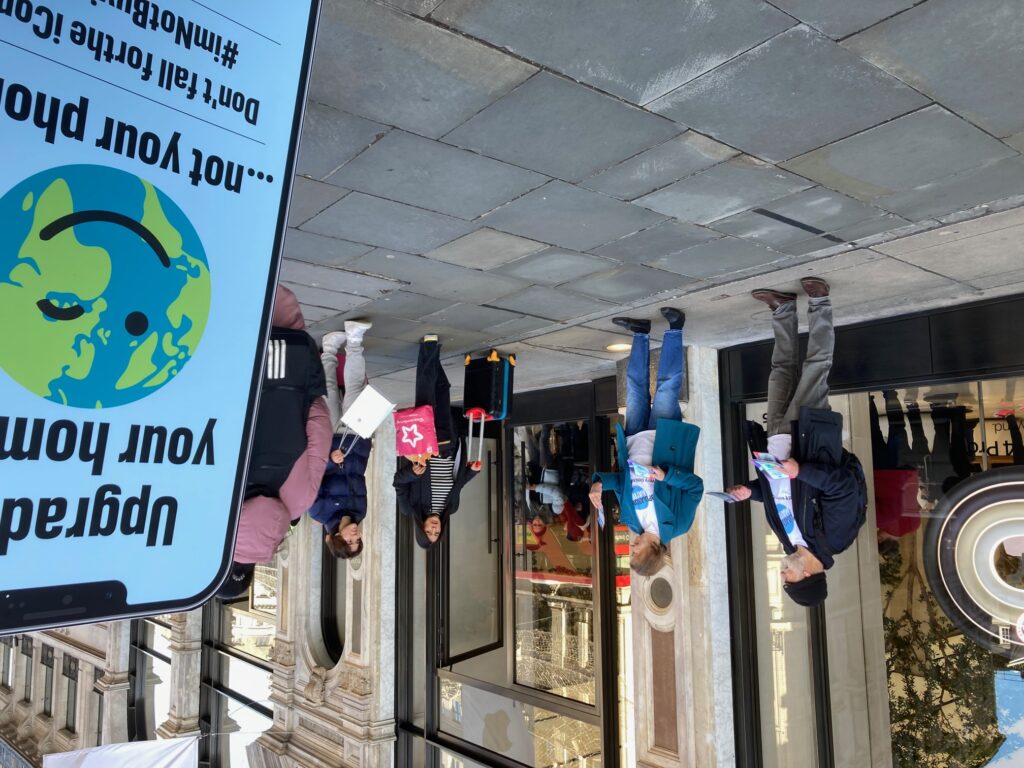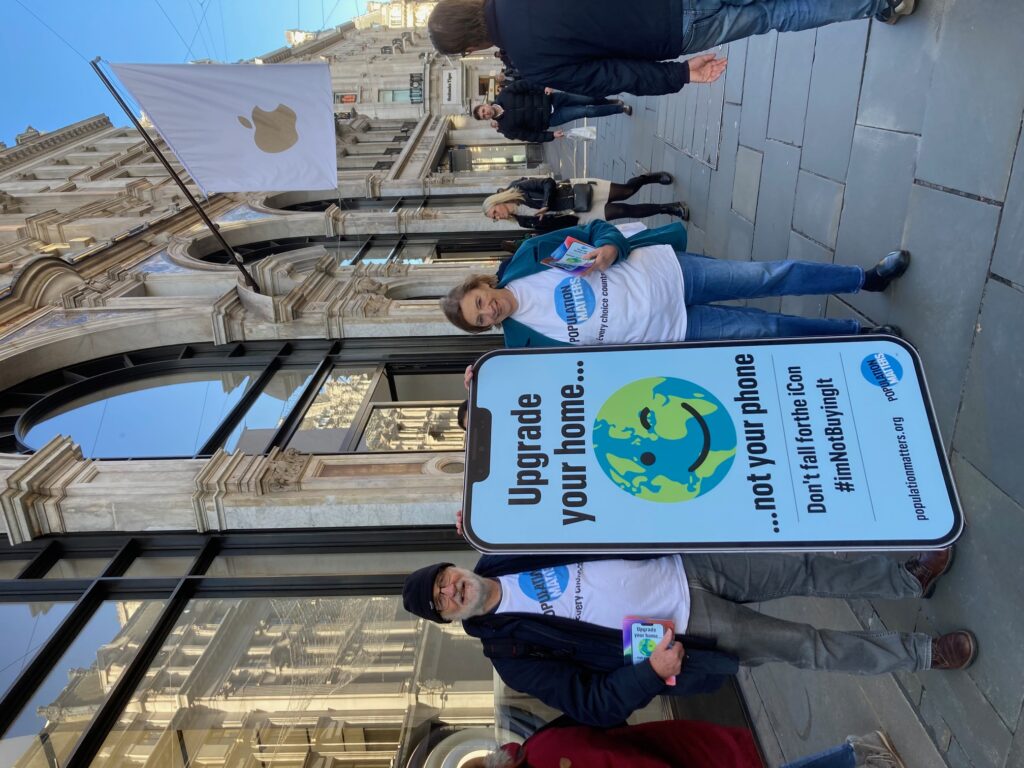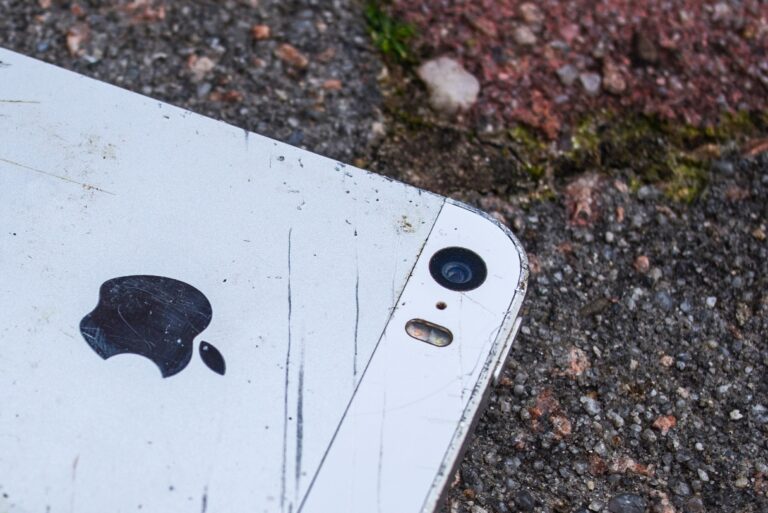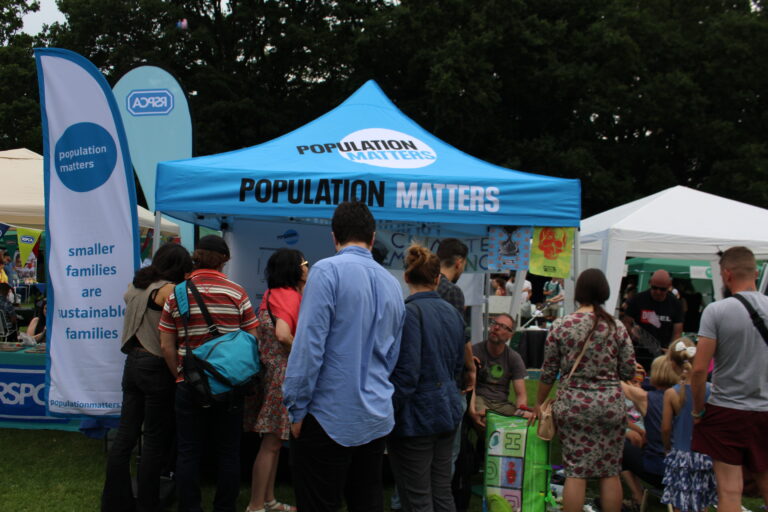Taking Action at the Apple Store, London
With a population of 8 billion and counting, we’re using up the renewable sources of 1.7 Earths. If we continue on our current trajectory, we’ll require 3 Earths by 2050.
Population growth and consumption jointly drive our environmental crises, so this September Population Matters (PM) launched our new campaign, We Don’t Buy It, to challenge the notion that newer or more things are better, encourage sustainable consumption, and confront external pressures that influence consumer behaviour.
iCon: What’s New?
The first focus of our campaign is the “iCon”, the way marketing generates and perpetuates hyperconsumption, with the annual “upgrade” programme of leading smartphone company, Apple one of the strongest examples.
To mark Black Friday, alternatively known as Buy Nothing Day (BND), we held an action to highlight the issues outside Apple’s flagship UK store on Regent Street in London.
Buy Nothing Day was created in September 1992 but moved to “Black Friday, the day after colonial Thanksgiving and one of the ten busiest shopping days in the US, to highlight the need “for society to examine the issue of overconsumption.” Originally just a US event, Black Friday has become a fixture of the UK retail year, as has Cyber Monday, intended to encourage online shopping.
Our action date was intentional, as we hoped to foster dialogue about individual and collective consumption, and how pervasive the idea has become that newer is better.
Alistair Currie, PM Head of Campaigns and Communications, and volunteers from Population Matters’ London Group gathered outside of the Apple store on Regents Street with an oversized “smartphone” bearing the message, “Upgrade your home, not your phone.”

We were met with people with arms full of shopping items, eyes on their phones, and found the store boasting four Apple security guards outside – not for us, but for potential thefts. This kind of holiday spirit was exactly what we aimed to challenge. While a number of passers-by were enthusiastic in their support for our action, relatively few shoppers took fliers and engaged with us, emphasising how much work is needed to address societal norms of consumption.
Troubled times for the iPhone 14
Since 2007, it has released 13 generations of iPhone, with about 26 different models – that’s a new line every year for almost two decades. Our campaign was launched to coincide with the release of the latest version – the iPhone 14.
The new flagship has faced problems, however.. The initial sales target was 90 million devices, but sales reportedly fell short by about 6 million units worldwide. Meanwhile, due to strict COVID restrictions in China, workers in Apple’s largest manufacturing company, FoxConn, in Zhengzhou – also known as iPhone city – walked out, also in protest of poor living and working conditions. They were later offered bonuses to return to work.
Foxconn told Reuters on Friday that iPhone production may be stalled even further, and it has been estimated that every week of shutdown could cost Apple roughly $1 billion in lost iPhone sales, stating that about “5% of iPhone 14 sales are likely off the table.”

What’s Next for iCon?
We are currently preparing a detailed report about Apple, its marketing and the environmental impact of smartphone production. We expect to publish before Christmas, the next peak period for sales.
The big picture
Although billions of smartphones are in use worldwide, they are just one tiny fraction of our overall consumption. Take our new Consumption Quiz to find out more about the big picture.


